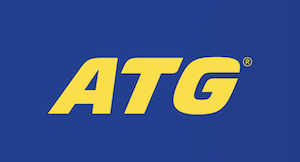Swedish operator group ATG has opposed the government’s gambling tax hike plans and instead wants taxes to rise solely for the online casino sector.

The government wants all gambling taxes to increase from 18 per cent to 22 per cent from July next year, but ATG – which specialises in racetracks and horseracing – wants betting tax to stay at the current level.
Instead, ATG CEO Hans Lord Skarplöth said a commercial online gambling tax hike to 26 per cent would still increase tax revenues compared to the Memorandum’s tax proposal.
Skarplöth said Sweden’s commercial online gambling sector is “considerably larger” than the betting market and is also the “fastest-growing part of the market.”
The group’s response added the plan “recognises the differences in risk and societal benefits associated with different forms of gambling” and ensures the system is “fair, transparent and supports activities that contribute positively to society, such as horse racing and sports.”
ATG concerned over tax increase
Skarplöth said ATG is “convinced” that the government’s original plan “will have significantly negative consequences for the horseracing industry.”
“ATG, owned by Svensk Travsport and Svensk Galopp, contributes over 90 per cent of the revenue to harness racing and thoroughbred racing,” he said.
“The proposed increase in gaming tax will reduce ATG's contribution to the horse racing industry by over SEK200m (£15.6m) per year.”
Black market remains a concern
The effect of the government’s proposal on the channelisation rate in Sweden has also been a hot topic of debate among the responses submitted.
Swedish gambling regulator Spelinspektionen said while it has no “substantive objections” to the move, it wants to monitor the growth of the black market closely if the plan went ahead, noting “certain difficulties” in “assessing the potential consequences” of the change.”
Trade body BOS, meanwhile, said the proposal “not only fails to address the consequences for key societal actors but also presents inadequate analysis.”
In his response, Skarplöth also hit back at the use of certain statistics in the Memorandum, such as the Swedish Financial Management Authority’s report into the gambling market.
He said: “ATG respects the difficulty of calculating the channelisation rate in the Swedish gambling market. However, when the government draws such significant conclusions and proposes a tax increase of over 20 per cent based on these conclusions, higher transparency regarding how the studies are conducted, methods, and boundaries would be desirable.
“When used as a basis for decision-making, it is crucial that transparency is high and sources of the original studies are disclosed. The lack of this in the Memorandum is a serious deficiency, especially since other studies point in a different direction.”

